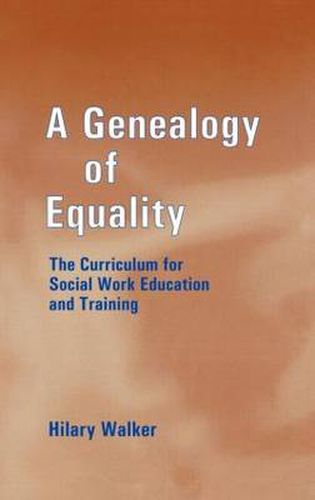Readings Newsletter
Become a Readings Member to make your shopping experience even easier.
Sign in or sign up for free!
You’re not far away from qualifying for FREE standard shipping within Australia
You’ve qualified for FREE standard shipping within Australia
The cart is loading…






This volume explores previously under-examined issues: the changes in the curriculum content of social work courses in higher education; why these changes were perceived as necessary; and the significance of these changes. The book focuses specifically on the controversial requirements relating to matters of equality, and the unavoidable questions that spring from these. For example, how should equality be defined? which areas - race , ethnicity, sexuality, gender or class - have been considered the most important? what is the role of social work in dealing with inequality? These issues are not just of theoetical interest: they affect the daily practice of social workers and the lives of their clients. Yet, politicians and the media have been quick to create a dichotomy between academic theory and common-sense practice that significantly impacted on the changes in the social work curriculum. The author brings an understanding and appreciation to the complex shifts in what is considered significant for social workers to know and to practise . She makes a strong case for an appreciation of the discursive context within which policy changes are proposed and implemented, and the importance of awareness of one’s own positionality when exploring social issues and putting forward potential solutions.
$9.00 standard shipping within Australia
FREE standard shipping within Australia for orders over $100.00
Express & International shipping calculated at checkout
This volume explores previously under-examined issues: the changes in the curriculum content of social work courses in higher education; why these changes were perceived as necessary; and the significance of these changes. The book focuses specifically on the controversial requirements relating to matters of equality, and the unavoidable questions that spring from these. For example, how should equality be defined? which areas - race , ethnicity, sexuality, gender or class - have been considered the most important? what is the role of social work in dealing with inequality? These issues are not just of theoetical interest: they affect the daily practice of social workers and the lives of their clients. Yet, politicians and the media have been quick to create a dichotomy between academic theory and common-sense practice that significantly impacted on the changes in the social work curriculum. The author brings an understanding and appreciation to the complex shifts in what is considered significant for social workers to know and to practise . She makes a strong case for an appreciation of the discursive context within which policy changes are proposed and implemented, and the importance of awareness of one’s own positionality when exploring social issues and putting forward potential solutions.